Building the Capacity of Social Workers to Provide Mental Health and Psychosocial Support
During the COVID-19 pandemic in Mozambique, escalating violence, including gender-based violence, psychological abuse, stigma, and discrimination, increased the need for social workers to provide mental health and psychosocial support (MHPSS) services. UNICEF and REPSSI collaborated to enhance social workers' capacity in delivering these essential services across all 11 provinces from December 2020 to November 2021, addressing urgent community needs.
OUR PROGRAMMING
The "Building the Capacity of Social Workers to Provide Mental Health and Psychosocial Support" project aimed to equip social workers in Mozambique with skills to address escalating violence, stigma, and psychological abuse during the COVID-19 pandemic. The focus was on strengthening psychosocial support delivery in emergency settings, both in-person and remotely. The impact included training 425 social workers across 11 provinces, enhancing their ability to provide critical mental health support to vulnerable communities.

PROJECT APPROACH

The project adopted a blended learning approach, combining online and classroom training to enhance social workers' capacity to provide psychosocial support. It developed disability-sensitive materials, job aids, and guidelines adapted for COVID-19 and emergency contexts. Social workers received 20 hours of remote induction, with hands-on training for provincial and district-level staff, ensuring effective psychosocial support across Mozambique’s 11 provinces.
The intervention equipped 425 social workers with the knowledge and skills needed to address critical issues such as abuse, stigma, discrimination, and psychological trauma during the COVID-19 pandemic. Through blended training and remote support techniques, they were empowered to respond effectively to escalating violence and mental health challenges. Inclusive materials and guidelines improved their capacity to provide psychosocial support, significantly enhancing their impact across Mozambique’s provinces
The REPSSI project implemented interventions such as peer support groups, community conversations, and training for teachers and health providers to enhance access to sexual and reproductive health services for adolescents. Post-project, beneficiaries reported increased knowledge about their health rights, improved psychosocial wellbeing, and enhanced self-esteem. They experienced better health outcomes, including increased access to HIV testing and treatment. Ultimately, the project empowered young people to advocate for their health needs, fostering long-term positive changes in their lives and communities.
Key lessons learned during the crisis include the critical importance of timely capacity-building for social workers to respond to mental health challenges in emergency settings. Remote training and support proved effective, there is need for improved digital access. Inclusive, disability-sensitive materials were essential in addressing diverse needs. Meanwhile, the collaboration with partners like UNICEF and REPSSI reinforced the role of psychosocial support in mitigating violence, stigma, and discrimination during crises.
